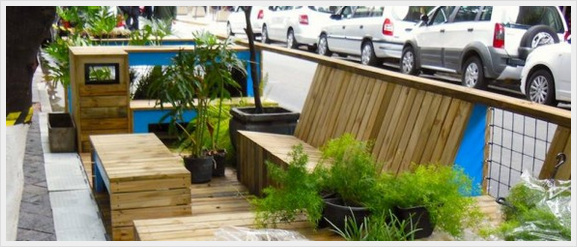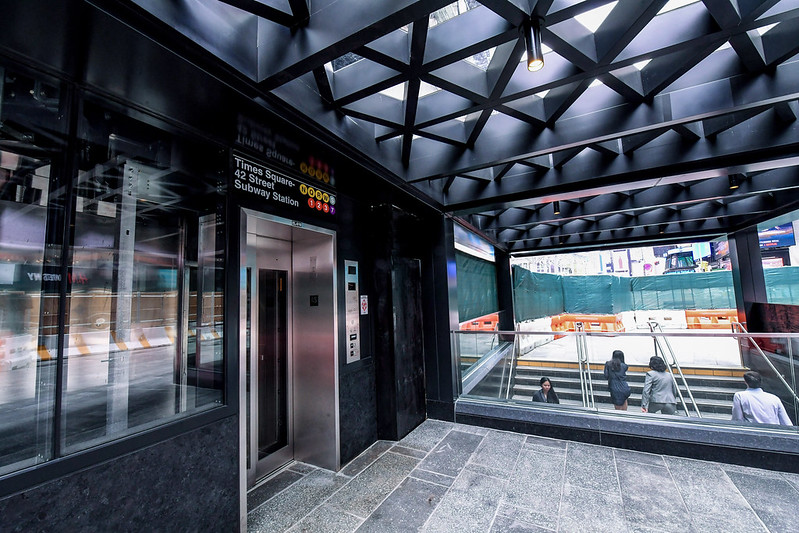
Photo: São-Paulo-mini-parks
São Paulo converts parking spaces into mini-parks
05 June 2014
by Richard Forster
How street space is allocated can send a powerful signal about a city’s priorities and São Paulo, Brazil is making the statement that the city is for pedestrians, by introducing parklets, which are small footpath extensions or green spaces built on former on-street parking spaces.
“It [a parklet] is an extension of the sidewalk that gives pedestrians and cyclists an area to occupy and use, and that will allow for a better city,” said Mayor of São Paulo, Fernando Haddad, who inaugurated the policy with a new parklet replacing several parking spaces at a highly visible downtown intersection, in the popular Jardins neighbourhood.
The parklets programme fits in perfectly with São Paulo’s attempts to promote a friendlier pedestrian environment, and involves replacing a parking space or two with a new public area. Parklets can incorporate benches, chairs, tables, trees, and bike racks for the public to use and enjoy.
The first parklets were built in San Francisco in 2010, and the idea has spread around the world. In São Paulo, the city experimented with removing parking spaces for parklets on several occasions, including through pilot programmes and on the annual International Parking Day, but these have previously always been temporary. The formalisation of the programme makes room for permanent parklets and proves São Paulo’s commitment to pedestrians and public space.
Under the new policy, any private citizen can sponsor a parklet. Rails or barriers protect the users from cars on the street, and parklets are not allowed in bus or bike lanes.
“We’re all very excited about the new parklets programme,” said Clarisse Linke, Director at the Institute for Transportation and Development Policy in Brazil . “It is a huge statement that São Paulo wants to be a better city for people. This law provides new places for Paulistas to interact with the city and shows that São Paulo is moving in the right direction.”
ITDP Brazil works closely with both São Paulo and Rio de Janeiro to promote pedestrian improvements and the conversion of unattractive and often underused spaces in the street into publicly accessible open spaces available for all citizens to enjoy.











